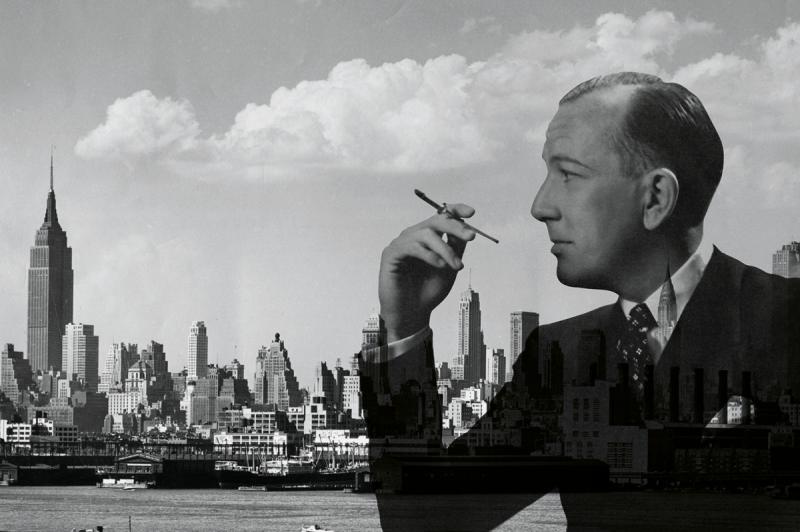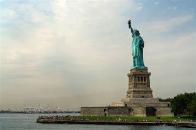Noel Coward, the English playwright who loved all things American
By: Alexander Larman (The Spectator World)



Half a century after his death, the playwright, songwriter, actor, director and general Renaissance man Noel Coward is regarded, with some justification, as the quintessential English polymath. His best-known plays and songs, from Private Lives and Present Laughter to "Mad Dogs and Englishmen" and "London Pride," seem so steeped in their Britishness — even if Coward was catering to a country that loved seeing a distorted, exaggerated version of itself — they could be placed in a time capsule as perfectly executed microcosms of the national identity. Any man who could write "Wouldn't it be dreadful to live in...
Half a century after his death, the playwright, songwriter, actor, director and general Renaissance man Noel Coward is regarded, with some justification, as the quintessential English polymath. His best-known plays and songs, from Private Lives and Present Laughter to "Mad Dogs and Englishmen" and "London Pride," seem so steeped in their Britishness — even if Coward was catering to a country that loved seeing a distorted, exaggerated version of itself — they could be placed in a time capsule as perfectly executed microcosms of the national identity. Any man who could write "Wouldn't it be dreadful to live in a country where they didn't have tea?" seemed to exemplify a stiff-upper-lip nostalgia that was perhaps never better expressed than in his tub-thumping, ultrapatriotic 1942 war film In Which We Serve, which, in its explicit avowal of the glories of the British military might, makes Top Gun look like subversive leftist propaganda.
However, for a man who was one of its best-known figures during his lifetime, Coward enjoyed a complex relationship with his home country. Like many wealthy Britons, he relocated to a variety of paradisaical boltholes in order to avoid paying punitive amounts of income tax: he lived in Jamaica, Bermuda and Switzerland in the last decades of his life, and eventually died of a heart attack in his villa Blue Harbor, in Jamaica's Firefly Estate. It is little coincidence that most of his postwar plays did not attract the same acclaim as his earlier work, as the England that Coward wrote about — like that other great humorous expatriate P.G. Wodehouse — had largely ceased to exist. Coward may have been conservative in his political views and reactionary in his nostalgia for a bygone world, but he was also (as befitted a man nicknamed "The Master") almost ruthlessly ambitious in his plans for world domination. And, in order to take over the globe, he had to succeed in the largest English-language market: the United States.
In Oliver Soden's excellent and thoroughly comprehensive new biography of Coward, Masquerade— already the recipient of considerable acclaim in Britain — we discover that Coward's first visit to America took place in June 1921. His fame was already such that the New York Times carried a special announcement of his impending visit, and even though Coward believed the Statue of Liberty "insignificant," he still saluted the city's "stinging enchantment," and, despite being caught up in what he called "a fracas far exceeding my wildest dreams" at immigration, wrote in his diary "I think I am going to like America." Even if he grumbled to his mother that "the streets of New York are so hot in the summer that you could fry an egg on the pavement (sorry, sidewalk!)," he remained in the city until late October, and made the useful acquaintance of everyone from actors and socialites to jazz maestros. As Soden observes, "the four months in New York had changed him as a writer and as a musician, as he had somehow known they would."
He continued to return to Manhattan throughout the Twenties; Tallulah Bankhead described him as "a frustrated young Englishman, then living on herbs and wild berries." By the time he made his Broadway debut proper in 1925 with The Vortex, Hay Fever and Easy Virtue, he might have been accused of bringing coals to Newcastle, so influential had the syncopated rhythms of waspish American wit, delivered at double speed, been on his own writing. Hay Fever was unsuccessful — too British by half — but The Vortex was an inordinate hit, and the New York Times's description of it as "sensational," in both definitions of the term, proved apposite. Four years previously, Coward had expressed a desire to like America. Now, he was pleased to discover that it returned his good opinion.
Not all his visits to the city were so glamorous; in 1928, when he was suddenly stricken with an attack of hemorrhoids, the headlines shrieked "NOEL COWARD OPERATED ON," although they tactfully omitted to mention his affliction. He continued to premiere his plays on Broadway after their initial London stagings, often to greater acclaim from the more cynical, worldly-wise Manhattan audiences, and such was his popularity in New York that he was even offered the chance to play Hamlet there in 1931: sadly, he turned down the opportunity, thereby depriving posterity of the chance to have seen the louchest, quippiest Dane of them all.
By the Thirties, even the greater permissiveness that Coward enjoyed with his work could be compromised: his most daring play of the period, the bisexual comedy Design for Living, opened on Broadway long before it appeared in Britain, where the dreaded Lord Chamberlain, who censored any plays thought to be disreputable, would have cut it to shreds. Even in America, its themes verged on de trop; as Soden notes, perhaps tongue-in-cheek, "Alfred Lunt would never again play a role of such sexual ambivalence." It was possibly not the worst thing for Coward to be linked by an optimistic press to none other than Greta Garbo, who wrote him wistfully to say, "Dear person, it almost makes me wish the newspapers in this country was [sic] right." She asked him, with suitable sexual ambiguity, if he would be "my little bride"; it remains unclear as to whether the "marriage" was ever consummated.
The outbreak of war saw Coward, by then working freelance for British Intelligence, head to America in 1940 to gauge the level of popular support for war — such was his standing that he was granted a private audience with Roosevelt for dinner at the White House. Coward sang a few of his cabaret songs, drank "a few snappy martinis" with the president and pronounced him "a first rate man." Yet he also knew that he was there for diplomatic, rather than pleasurable, purposes, and wrote to Roosevelt to say, tub-thumpingly, "I have encountered [in America] a number of people who appear skeptical both of Britain's resolve and her ability to face and overcome the extreme challenges we presently face. In my humble actor's way I have tried to convince them that, though we may inhabit a small island, we never have been or ever shall be a small people."
He returned to America repeatedly throughout the war, and afterward, but perhaps his most iconic association with the country came in 1955, when he performed a series of legendary cabaret shows in Las Vegas. The famous images Loomis Dean shot for Life magazine of Coward in the Nevada desert, smoking a cigarette and looking every inch the Englishman abroad, helped to promote the iconography of him in the second act of his career. He performed at the Desert Inn for a vast amount of money — necessarily, given his financial obligations to the taxman — and declared himself unfazed by his venue's criminal associations, declaring "The gangsters are all urbane and charming. I had a feeling that if I opened a rival casino I would be battered to death with the utmost efficiency and dispatch, but if I remained on my own ground as a most highly paid entertainer that I could trust them all the way."
At a time when Coward might have expected to slip into obscurity and cozy nostalgia, it revitalized his life. On June 12 he wrote in his diary, "I have made one of the most sensational successes of my career and to pretend that I am not absolutely delighted would be idiotic. I have had screaming rave notices and the news has flashed round the world."
It made him a star on screen as well as on stage, leading to a variety of well-paid television specials, even though the McCarthyite paranoia of the era meant that Coward's homosexuality — never exactly a well-kept secret in the circles in which he moved — had to be concealed at all costs from suspicious and prurient minds.
His inner conservative, perhaps surprisingly, approved. As he wrote in his diary, "Any sexual activities when over-advertised are tasteless, and for as long as these barbarous laws exist it should be remembered that homosexuality is a penal offence and should be considered as such socially, although not morally."
It was to be his last significant appearance in the country that had been a second home to him, both artistically and personally. As he aged, he spent time in warmer countries, where he enjoyed the fruits of his enormous success, but he never lost his affection for the United States. His song 'I Like America' suggested why it appealed so much to the boy from Southwest London:
But I like America,
Every scrap of it,
All the sentimental crap of it And come what may
Give me a holiday
In the good old USA
This article was originally published in The Spectator's May 2023 World edition.
By
Alexander Larman
Alexander Larman is the books editor of The Spectator's World edition and the author of titles including The Crown in Crisis: Countdown to the Abdication and Byron's Women.






Noel Coward must be turning over in his grave.
Fortunately, he didn't get to see what the left did to a great civilization.
Yet Noel Coward lived his life hidden in the closet!
You mean you don't like certain people?
Do tell...
Very few Americans today have even heard of these plays, let alone have familiarity with them. Who's next up, George M. Cohan ?
Nothing against Noel Coward , who was great in a much different era, [deleted] There must be a subtle political message attempted.
Personally, I'll settle for Shakespeare.
Careful, I got a ticket for saying something like that.
Personally, I'll settle for Shakespeare.
Such a high standard. Tell us how many Americans today can name his plays.
I'm sure it's a hell of a lot more than can name Noel Coward's.
I doubt it. You have the country that you wanted.